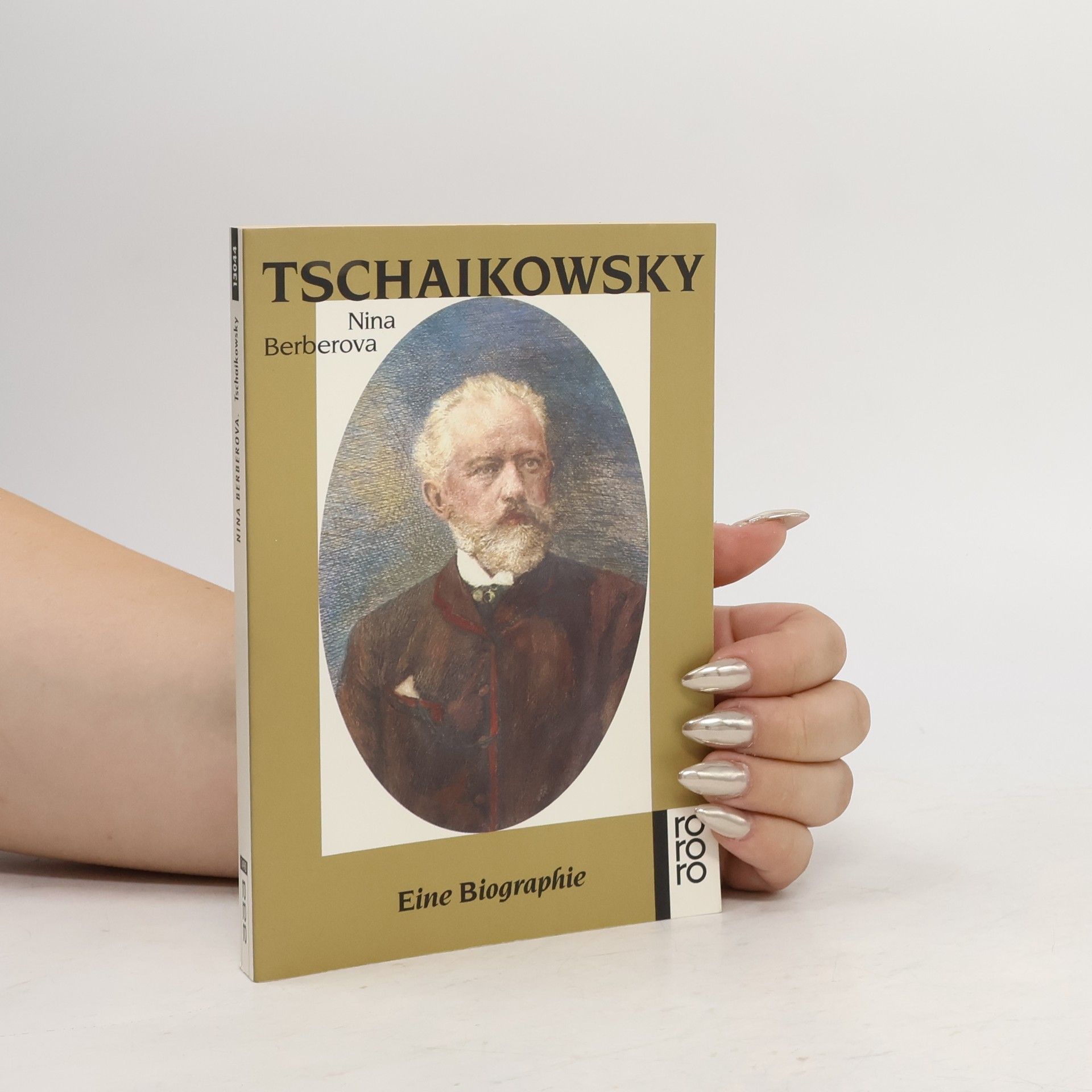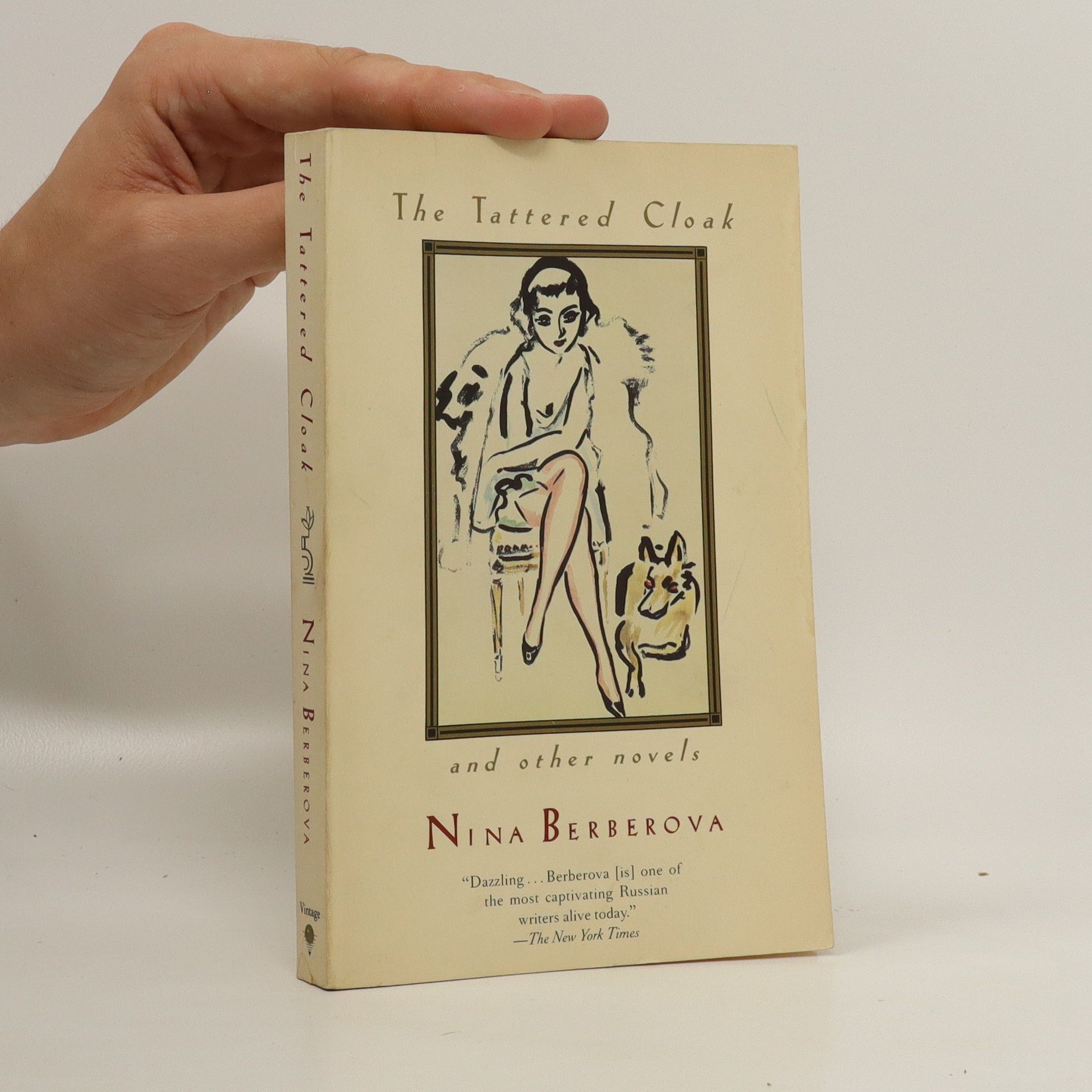El Libro de La Felicidad
- 263 páginas
- 10 horas de lectura
Nina Berberova fue una escritora rusa que narró las vidas de los exiliados rusos en París en sus cuentos y novelas. Su obra capta la profunda sensación de desarraigo y la búsqueda de identidad de aquellos obligados a abandonar su patria. Berberova representó magistralmente los intrincados destinos de sus personajes, tejiendo sus viajes personales en el rico tapiz de la vida cultural y social europea de entreguerras. A través de su conmovedora prosa, ofreció a los lectores una visión íntima de las vidas de los emigrantes que navegan por las complejidades de una nueva existencia.







The first English translation of celebrated Russian writer Nina Berberova's debut novel: an intense story of family conflict.
Records Nina Berberova's life in St Petersburg before and during the Russian Revolution, then her life in Paris, where she was central to the influential literary Russian emigre circle which included Akhmatova, Gorky, Nabokov, Pasternak and Svetaeva.
Autobiografie známé ruské básnířky, prozaičky, literární kritičky a profesorky princetonské univerzity Niny Berberovové, jež emigrovala z revolučního Ruska spolu s básníkem Chodasevičem v r. 1922 do Berlína, přináší nejen rekapitulaci autorčina života, ale též „neočarovaný pohled“ na každodenní život a přežívání ruské literární emigrace v Berlíně, Paříži a USA. Čtenáři nabízí nečekaně nesentimentální a kritické portréty autorčiných současníků, spisovatelů, básníků i politiků – Gorkého, Bunina, Bělého, Gippiusové, Cvětajevové, Achmatovové, Nabokova, Zajceva, G. Ivanova, Kerenského, Merežkovského ad.
Im Paris der 30er Jahre ist ein russischer Emigrant, eine schillernde Existenz zwischen zwei Welten, erfolgreich als Vertreter einer Lebensversicherung
Die Diamantohrringe hatten neun Jahre in einem Pariser Leihhaus gelegen - als Erinnerung an eine glückliche Vergangenheit und als Pfand für eine bessere Zukunft. Die glückliche Vergangenheit, das war die Liebe zur gestorbenen Ehefrau. Die bessere Zukunft, das sollte ein Leben in Chicago bei seinem russischen Freund Drudschin sein. Und die Ohrringe sollten das Geld bringen für die Reise dorthin. Aber alles kommt anders: Erst quartiert sich die schwarzäugige Revuetänzerin Alja mit ihrem riesigen lila Tüllrock in Jewgenjijs Zimmer ein und möchte ihn zum Bleiben verführen. Dann - immerhin schon in New York angelangt - verliebt sich Ludmilla, die Tochter seines Chef in ihn. Wird er jemals Chicago, wird er Drudschin erreichen?§
Tania erwartet von ihrem Leben etwas ganz Besonderes. Aufgewachsen als Tochter eines hohen russischen Beamten in Petersburg, folgt sie ihrem Vater nach der Revolution nach Japan. Erst kann sie sich für keinen der Männer, die ihr den Hof machen, erwärmen, aber dann setzt sie sich just den Verlobten ihrer Schwester in den Kopf.§Nachdem sie Alexej geheiratet hat, versuchen die beiden in Paris ihr Glück. Aber es dauert nicht lange und er stirbt. Ratlos irrt Tania durch die Stadt der Verlockungen und des Überflusses, und doch gelingt es ihr nicht, den engen Kreis der armen russischen Immigranten zu verlassen.§Eine letzte Anstrengung führt sie in die Arme des Oberkellners Bologowskij, ehemaliger Leutnant in der Garde des Zaren. Und langsam entsteht in ihr ein teuflischer Plan ...§
В том вошли произведения биографического жанра, принесшие Нине Берберовой мировую известность. С мастерством строгого историка, наблюдательного мемуариста и проницательного биографа писательница рисует портреты удивительной женщины Марии Закревской-Бенкендорф-Будберг и великого русского композитора Петра Ильича Чайковского.